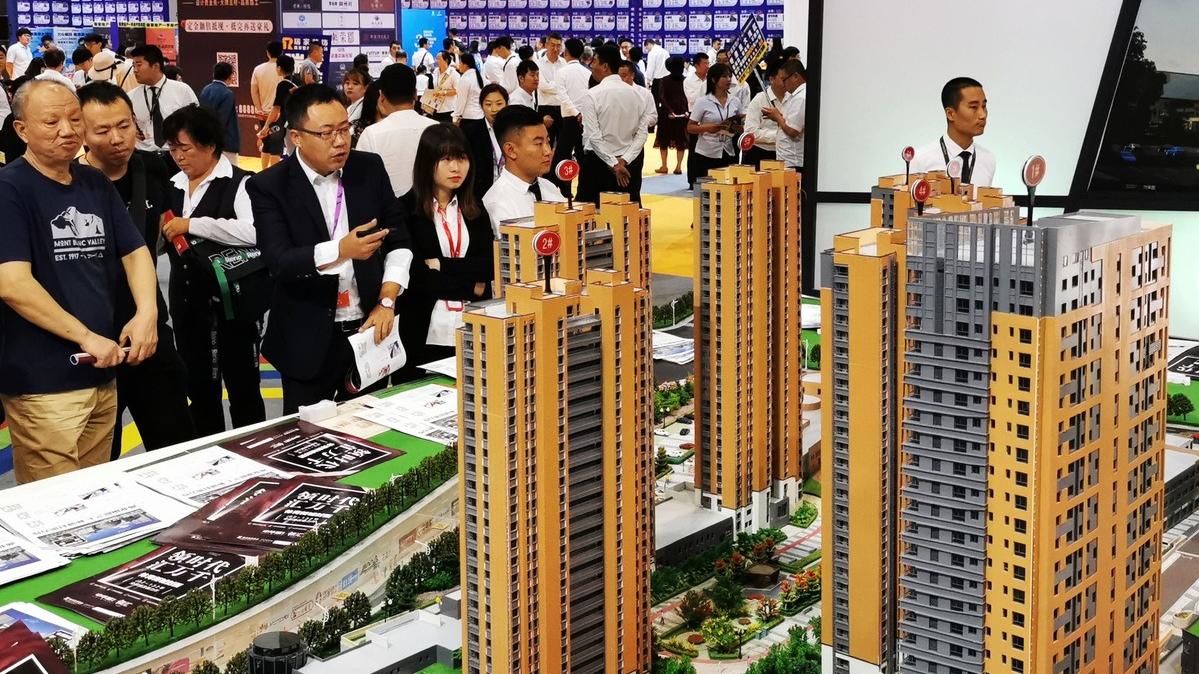 In this undated photo, potential homebuyers check housing project models at a real estate agency in Dalian, Liaoning province. (LIU DEBING / FOR CHINA DAILY)
In this undated photo, potential homebuyers check housing project models at a real estate agency in Dalian, Liaoning province. (LIU DEBING / FOR CHINA DAILY)
China’s regulators plan to cap banks’ lending to the real estate sector for the first time, in their latest efforts to guard against systematic risks and ensure financial stability after a series of property curbs in recent years did little to damp buyer enthusiasm.
The new policy can “help market participants form stable policy expectations, and help promote stable, healthy and sustainable development of the real estate market,” according to a statement
Under the new mechanism to take effect on Jan 1, 2021, loans to developers will be capped at 40 percent for the nation’s largest state-owned lenders while banks’ mortgage lending should be no more than 32.5 percent of their outstanding credit, the People’s Bank of China and the China Banking and Insurance Regulatory Commission said in a joint statement on Thursday. Those exceeding the cap will have a grace period of up to four years to meet the requirements.
ALSO READ: China's banks told to monitor mortgage lending
The move underscores authorities’ determination to keep a tight rein on the bubble-prone sector and curb leverage at some of the nation’s largest developers. China’s home prices kept rising despite years of regulatory clampdown, stoking social discontent and pushing up financial risks as lenders increased bets on the sector to bolster profits.
A gauge of Shanghai-listed developer stocks slumped 10 percent this year, while the benchmark Shanghai Composite Index rallied 14 percent.
The government seeks to “optimize” the lending structure and boost support to micro businesses and agriculture, and achieve “balanced” development of real estate along with the real economy, the central bank said.
Earlier this year, China’s housing watchdog and central bank have asked 12 developers, including China Evergrande Group, Sunac China Holdings Ltd and China Vanke Co, to report their financing, total debts and business data on the 15th of every month to monitor their financial healthiness.
New home prices rose by 0.12 percent last month, the slowest pace since February, as wider property curbs cooled demand, prompting developers to cut prices. Still, prices have gained every month since mid 2015.

For now, a renewed fear of missing out on price increases and an urge to guard against anticipated inflation are sustaining housing demand. Credit growth rebounded as monetary-policy easing continues to support the recovery from the pandemic.
READ MORE: Long-term steps urged to regulate housing sector
The new policy can “help market participants form stable policy expectations, and help promote stable, healthy and sustainable development of the real estate market,” according to the statement.
Banks will be put into five categories and subject to different limits on their loans to developers and home buyers. While most of them had their real estate exposure within the cap currently, those failing to comply will face additional capital charges.


